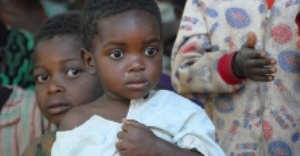Jun 13 2013
A mobile phone equipped to measure heart rate, body temperature and breathing, with a digital medical manual for health care staff. Unmanned drones that can drop medicine and collect blood samples in remote areas. Researchers from Lund University in Sweden, Cork and Oxford are set to develop new technology that could revolutionise health care in the country.

The drones will be connected to the mobile network, meaning tracking the devices and even checking the temperature of drugs being carried is possible. Another potential benefit is understanding how diseases are spreading geographically, making it easier to identify epidemics earlier.
“We are also considering using lightweight solar panels to charge the mobiles and drones with”, says Sven Carlsson, Professor of Informatics and head of the Lund University research group joining the Life Support project.
In rural Malawi, aid organisations’ health care staff currently use a printed disease manual called IMCI when diagnosing patients. The format makes it difficult to use in the field.
“Mobile IMCI will make it easier for health care staff to use the manual and make a correct diagnosis. It is an aid that will save lives in the long term”, concludes Sven Carlsson.
About the project:
Life Support will be based at health clinics outside cities in northern Malawi. Researchers from several countries, including the UK, Sweden, Norway and Malawi, will collaborate with aid organisations working in Malawi.
Of every 1 000 live births in Malawi, 133 children die before their fifth birthday, often of treatable diseases like malaria and diarrhoea. The EU project Supporting LIFE, which has a budget of EUR 3.7 million, aims to contribute to the UN goal of cutting infant mortality by two thirds by 2015.
Contact:
Professor Sven Carlsson
+46 46 222 80 26
[email protected]
Assistant Professor Bo Andersson
+46 46 222 33 84
[email protected]